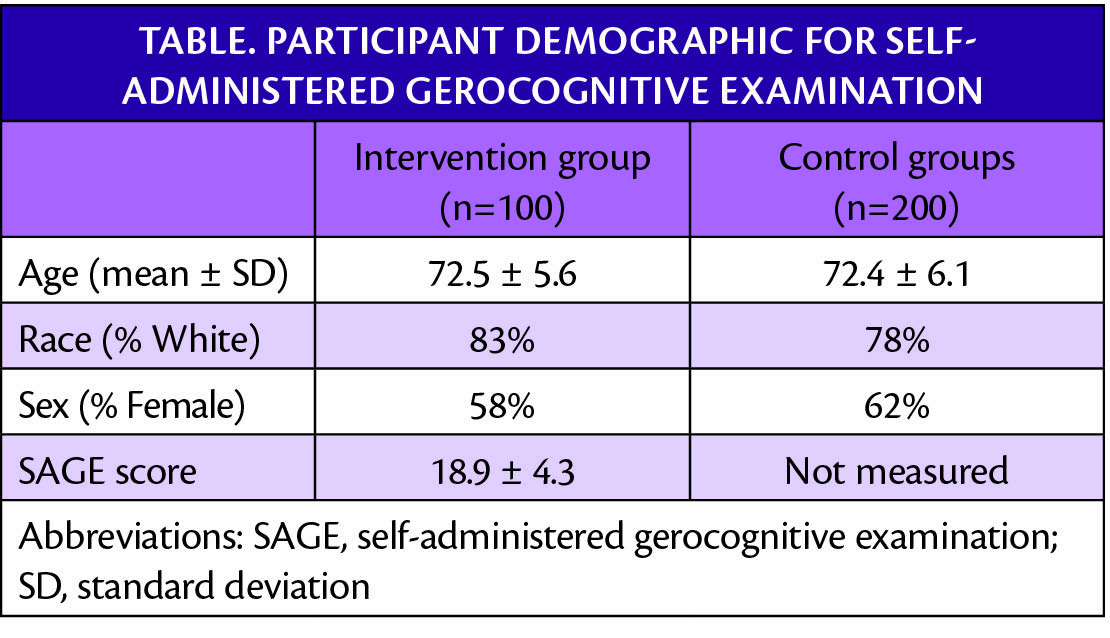SAGE Cognitive Screening Tool Increased Detection of Cognitive Decline
In a study presented at the American Academy of Neurology Virtual Annual Meeting April 17-22, use of a self-administered gerocognitive examination (SAGE) combined with an informant report of significant cognitive decline over a year increased detection of cognitive impairment 15-fold. SAGE is a written, cognitive assessment for individuals with cognitive impairment when seeing their primary care provider (PCP).
When SAGE was utilized there was increased detection of new cognitive conditions 6 times (9% vs 1.5%) as often as without the assessment (P=.003). In the intervention group, detection rate was nearly 4-fold higher when SAGE scores were in the cognitively impaired range (P=.034). Combined information from the SAGE score and informant report showed a 15-fold likelihood of new cognitive conditions documented (P=.007). Of the providers, 86% recommended SAGE to colleagues, and 25% felt it took too much time during the visit.
In the study, 300 participants enrolled were of the ages 65 years to 89 years who had undiagnosed cognitive disorders with acceptable reading, vision, and English language comprehension. Participants also completed a nonacute PCP office visit. The participants were separated into 2 groups visiting 2 different offices: 100 in the intervention group and 200 in the control group. Those in the control group had visits conducted normally without the SAGE assessment where the intervention group did conduct the assessment.

